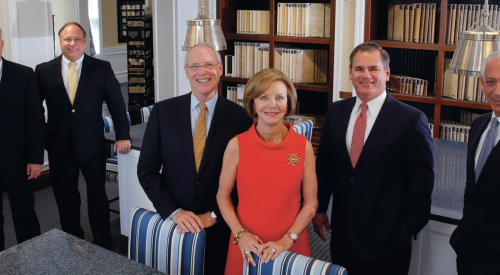We had a special party at Professional Builder this week. You see, one of our own, Phil Cody, is retiring after a successful sales career with this magazine and several others as well. Phil is one of the good guys - one of those people everyone leans on and learns from every day. I certainly know I did and I will miss him.
I tell you about this because Phil was much more than a sales person to me and the rest of the PB team. He was a walking, talking example of how to do a job well. Not once did he make a sales call when I didn’t get a phone message after the meeting had ended.
"Heather, it’s Phil here," he would say. "Two things I need to know for this customer." On every call with every customer, Phil made sure he never left the client’s office without making certain he had a reason to be asked back. After all, his job wasn’t to sell ad space; it was to help his clients find the right tools and right customers to meet their business goals.
Phil succeeded in this demanding business for a lot of different reasons, but the primary reason for his success is this: Never - not once - did Phil think only about himself or his product. Certainly, there were times when he didn’t get the order, yet even in those instances, he did his job well, teaching the client about his magazine and its market, and how he could help them meet their objectives.
There aren’t a lot of people like Phil, though there are a lot of situations in our business today that require someone just like him. I think about the type of person who will satisfy baby boomers as they make decisions regarding their next life stage house. Notice that nowhere in the previous sentence did I use the word sell. In every focus group in every city, participants told us that the new home sales process as it presently exists actually works against the new home purchase option.
Baby boomers want - actually insist - that every sales person interested in getting their business take the time to truly learn about them. Know what is important to us, they ask. Understand how we will live in the house, they demand. Pay attention to the community amenities we seek, they beg.
What they are really asking is that sales people respect them and their time. Be prepared to speak to their specific wants and needs in a new home. "Save the prepared sales presentation for a less market savvy buyer," is what these aging baby boomers left unsaid, but certainly implied.
The sales professional who personalizes the new home presentation process is the one who will win the order, but that is only the first step. These same sales people must be trained to answer questions during construction from a very skeptical buyer. While they may have already shelled out the money and signed a contract, leading-edge baby boomers don’t believe today’s new homes offer the same quality and craftsmanship as their older counterparts.
Combine this sales prescription, direct from one of the largest market forces in existence today, with the message in Scott Sedam’s April column in which he longed for a new sales role model in the industry, and the image in the mirror isn’t the most flattering. While exceptional sales people certainly exist in the new home building business, as a group the focus has been on what we have to sell, not on what the buyer wants or will pay for.
That model must change. Recognize that today’s buyers come into the sales office or models knowing much more about your company, your products and your competition than ever before. The Internet and the billions of bits of information it contains has created educated buyers in total control of the new home purchase decision. They already know much of what the average sales person has to tell.
My friend and colleague Phil was a survivor and a success in an arena every bit as competitive as new home sales. His formula was simple: Listen to the customer and learn what it is you have to sell.











